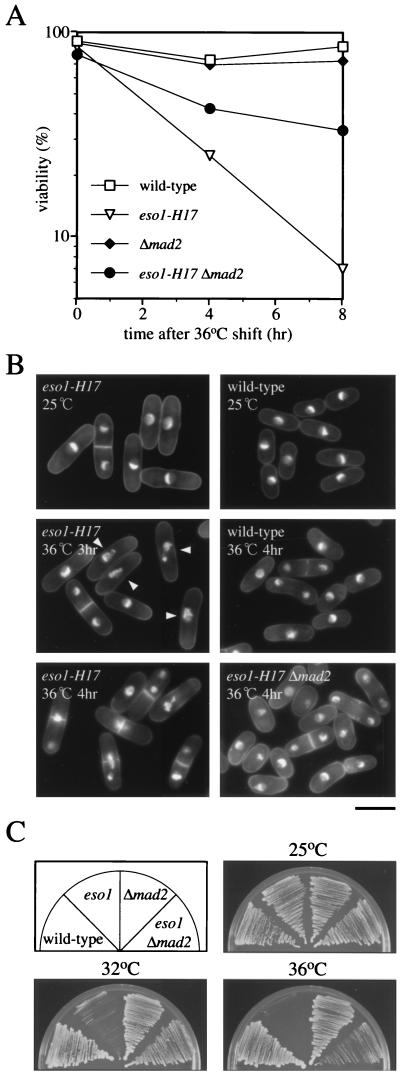FIG. 2.
Loss of Eso1p function leads to spindle assembly checkpoint-dependent mitotic delay. (A) eso1-H17 cells quickly lost viability upon a shift to the nonpermissive temperature. Wild-type (h− leu1-32), eso1-H17 (h− eso1-H17 leu1-32), Δmad2 (h− mad2::ura4+ ura4-D18 leu1-32), and eso1-H17 Δmad2 (h− eso1-H17 mad2::ura4+ ura4-D18 leu1-32) cells were grown to mid-log phase at 25°C in YEL medium and shifted to 36°C. Cell aliquots were taken at 4 and 8 h after the temperature shift and plated on YEA at 25°C. (B) eso1-H17 cells are defective in chromosome segregation. Cells were grown to mid-log phase at 25°C in YEL medium and shifted to 36°C. Cell aliquots were taken at indicated times, fixed with glutaraldehyde, and stained with DAPI. Arrowheads indicate the cells showing a mitotic delay. Bar, 10 μm. (C) Temperature sensitivity of eso1-H17 cells is partially suppressed by deletion of the mad2+ gene. The indicated cells were inoculated on YEA plates and incubated for 3 days at the indicated temperatures.

